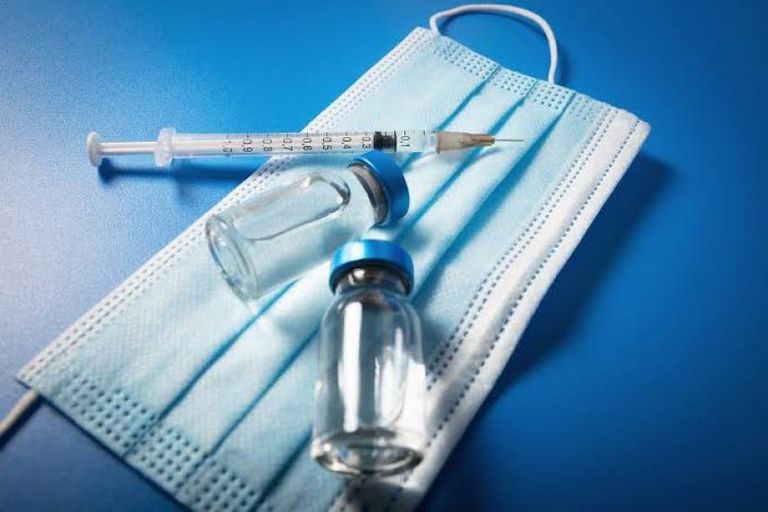
Indonesia is believed to be experiencing the third wave of the Covid-19 pandemic. Efforts from the government to deal with the third wave of Covid-19 which is dominated by the Omicron variant continues.
Head of The Health Support Sub-Field for Emergency Support task force Covid 19, Alexander K Ginting said, the central government has set six strategies to deal with the third wave.
First, it ensures the easing of activities that are followed by strict control in the field. This is done so that the community does not respond to the decrease in the level of enactment of restrictions on community activities (PPKM) with freedom and excessive as stated in Inmendagri Number 10 Java-Bali and Inmendagri Number 11 outside Java-Bali.
"And, we also carry out controls in hotspot areas contributing to the highest cases and mobility control so that cases do not expand," Alex said in a webinar held by Katadata with the theme 'Strategies to Deal with the Third Wave of Pandemics', Friday (2/18/2022).
Second, the government will continue to increase the rate of vaccination for the elderly and comorbid groups, especially in agglomeration areas and economic growth centers.
Third, the government encourages the acceleration of childhood vaccination so that children's immunity can be formed when the face-to-face learning period (PTM) is 100 percent implemented. The latest data shows that the achievement of the first dose of 6-11 vaccines amounted to 17.6 million or 66.72 percent and the second dose of vaccination has reached 7.7 million or 29.28 percent. Meanwhile, the target target of vaccination of children aged 6-11 years is as much as 26.4 million.
Fourth, the government will regulate the mobility of foreign travel actors (PPLN) with strict health protocol rules and quarantine. While his party will regulate domestic travel actors (PPDN) in accordance with circular letter (SE) task force No. 7 of 2022.
"The government will also conduct a travel bubble through SE Task Force Number 5 and 6 of 2022 on the G20 Meeting," he said.
Fifth, the central government will strengthen the role of local governments in order to increase testing and search capacity, as well as supervise activities and educate citizens about health protocols that must be carried out by strengthening the capacity of micro-scale PPKM in villages and villages.
Sixth and no less important in the face of the third wave, is to conduct a campaign of health protocols to improve public discipline, including mask surgery.
In addition, Alex asked that the public not focus on the corona virus variant that now exists in Indonesia. According to him, in Indonesia there is an Alfa variant there is Delta, not only Omicron. Because according to reports, in the community there is still circulating Covid-19 Delta variant.
"People don't need to be asked to be polished, whether he has Delta or Omicron. Whatever the variant, it is covid-19," he said.
Alex suggested that health practitioners and epidemiologists not only convey the focus of vaccination, but also convey the focus on how to overcome comorbids in the community. This factor is no less important to convey to the community.
That's because the mortality rate during the third wave of the Omicron variant's covid-19 pandemic amounted to 1,090 patients, 48 percent due to comorbids and 68 percent had not been fully vaccinated. "Between vaccination and comorbids we have to convey. Do not let any covid-19 patients die from comorbid, "said Alex.
Based on data from the Covid-19 Handling Task Force as of yesterday, the government has injected the first dose of vaccine as much as 180,067,416 doses, the second dose of vaccination has been injected 138,280,959 doses and the third vaccination or booster reached 7,730,486 doses.
Not only the central government has a third wave countermeasures strategy, the local government also does. For example, West Java. There are six priority programs to anticipate the third wave carried out by West Java Province.
Head of West Java Provincial Health Office, Nina Susana Dewi explained, the first priority program is to do greater weighting of the hospital occupancy rate (BOR).
Second, West Java residents can use pikobar mll teleconsultation for consultations to submit vitamin and drug needs during self-isolation. Authorities will distribute vitamins and drugs directly to people's homes.
Third, the West Java government will apply for oxygen tubes of west Java people through Pikobar by filling out forms, preparing id card photos, proof of oxygen saturation using oximeter, as well as evidence of PCR or antigen test results. The public can also be a contributor to oxygen tubes through Pikobar.
Fourth, the West Java government continues to accelerate vaccination, in collaboration with the TNI-Polri and districts / cities, synergizing with the Regional Leadership Coordination Forum (Forkompimda). Of course, in the face of the third wave of the covid-19 pandemic, West Java needs collaboration and synergy of all parties.
"Fifth, we are increasing the capacity of PCR testing laboratories," nina said.
Sixth, it strengthened the 5M campaign (wearing masks, washing hands, staying away from crowds, maintaining distance and reducing mobility) through various media. For example, through road shows, strengthening geber prevent covid-19, strengthening germas, strengthening community empowerment through villages or active standby villages.
As of yesterday, West Java Province experienced the highest peak of new cases, reaching 16,251 people exposed to corona, 13,108 people treated, and 3,330 patients cured. The highest cases of covid-19 for West Java are in the agglomeration area and Greater Bandung.
"The highest Covid-19 cases are still around the agglomeration area and Greater Bandung. This is our priority," he said.